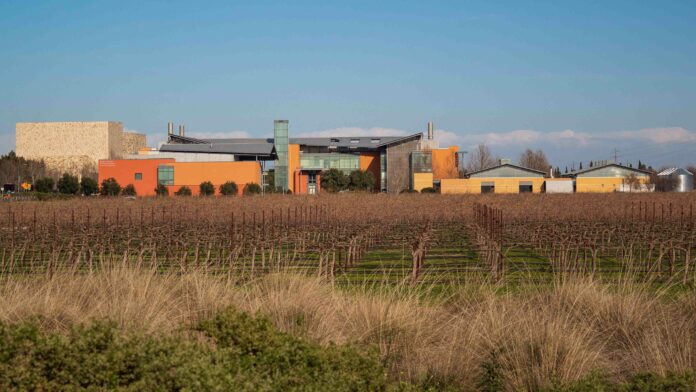20,000 bottles of student-made wine could enter market
State Senator Bill Dodd (D-Napa) introduced legislation that would amend existing laws to allow UC Davis to sell wine produced by viticulture students. A similar bill, Senate Bill 683, passed in 2016, aimed to grant licenses to university-associated nonprofit mutual benefit corporations to allow for the sale of wine, but that bill has yet to be implemented due to technicalities of the language. This most recently introduced bill would correct these technicalities.
Currently, UC Davis viticulture and enology students participating in VEN 124L, a winemaking laboratory class, have the opportunity to gain hands-on experience making wine. Samantha Sanchez, a fourth-year viticulture and enology major, explained more about how winemaking factors into students’ curriculum.
“We all get to make our own red and white wine batches over the course of the quarter,” Sanchez said. “We are given a ‘budget’ and can only spend as much as our budget allows in terms of changing protocol or running lab analyses.”
Students in VEN 124L have the opportunity to simulate tests done in the wine industry, choosing between running lab analyses or making different changes to their batches of wine. Part of the class helps students understand the financial components that go into winemaking. Students in VEN 124L make thousands of gallons of wine over the year.
“The wine is disposed of or saved in storage for research, depending on the head winemaker,” Sanchez said.
This bill would allow the state Department of Alcoholic Beverage Control to grant a special nonprofit sales license to a UC Davis nonprofit to sell up to 20,000 gallons of wine to corporations. From here, corporations would sell wine to winemakers who would be responsible for packaging and selling the wine to consumers.
The State of California produced 248 million cases of wine in 2018, according to Discover California Wines. The 20,000 gallons UC Davis would hypothetically be able to sell translates to about 8,500 cases of wine per year.
Opposition groups, including Alcohol Justice, have spoken out about the bill, claiming it perpetuates binge-drinking culture. Carson Benowitz-Fredericks, the research manager for Alcohol Justice, commented further on the organization’s issues with the bill.
“We have always opposed colleges and universities from promoting alcohol consumption,” Benowitz-Fredericks said. “A significant number of people studying and living there are under the legal drinking age and therefore exceptionally vulnerable to harm from alcohol overconsumption. SB 918 strengthens an already questionable policy that undermines UC Davis’ mission to create a safe and healthy environment for its students. Sending the message that selling alcohol is an appropriate way to fund the university sends the message that alcohol is essential to a higher education.”
The UC Davis Viticulture and Enology Department will derive profits from the sale of student-made wines, all of which would subsequently benefit students.
Dodd sees the department’s ability to make money from student-made wines as a positive, rather than a drawback of the bill.
“It’s a win-win situation that ensures students get to see their efforts come to fruition while supporting the program for future generations,” Dodd wrote via email.
Other universities, including Fresno State and Cal Poly, have organized similar arrangements and already sell student-made wine. Senate Bill 683 would apply solely to UC Davis.
A large part of students’ learning experiences involves making mistakes and learning along the way — and winemaking is no exception.
“We’re all amateur winemakers, so the class isn’t graded on how good the wine is, but how well you understand the winemaking process and why your wine went right or wrong,” Sanchez said.
For this reason, UC Davis would ensure student-wine meets a certain quality before selling it. Other wines below this quality level would be sold as wine vinegar.
Students are working with high-quality grapes sourced from Napa Valley, on-campus vineyards and UC Davis’ Oakville Station Vineyard.
David E. Block, the chair of the Department of Viticulture and Enology, commented on other factors motivating efforts behind this bill.
“As the most sustainable winery in the world, it doesn’t make sense for us to be pouring our wine down the drain year after year,” Block said. “This will give us a much more sustainable means of disposing of our wine, and any income from the sales will be re-invested into our teaching, research and extension programs to help us help the California grape and wine industry.”
The UC Davis viticulture department is already actively involved in the wine industry, boasting a 40-acre research vineyard located in Napa. The Oakville Station Vineyard is also home to multiple research facilities, including the Harry E. Jacob Research Facility and the Robert J. Barone Laboratory.
Written by: Ally Russell — campus@theaggie.org









